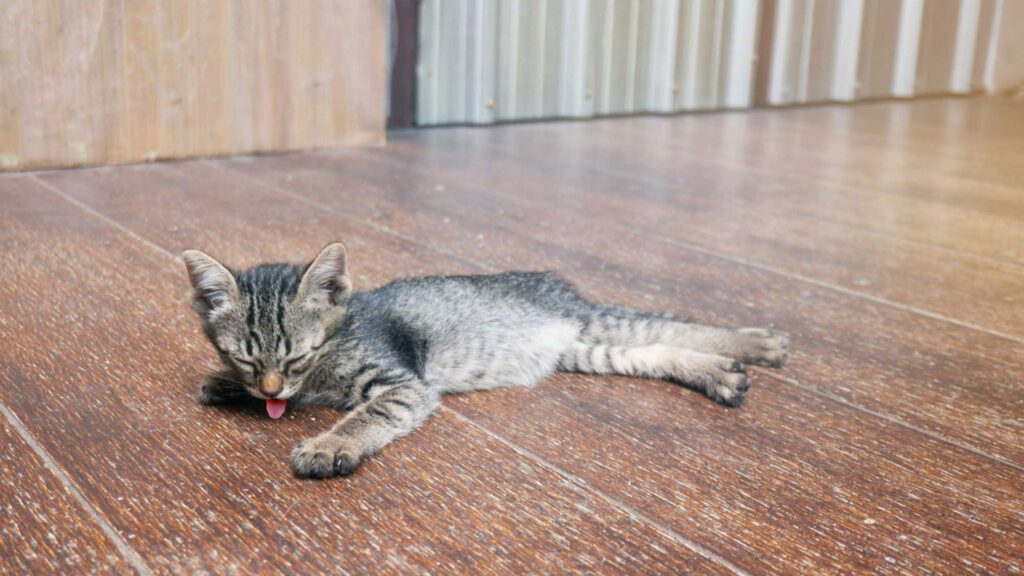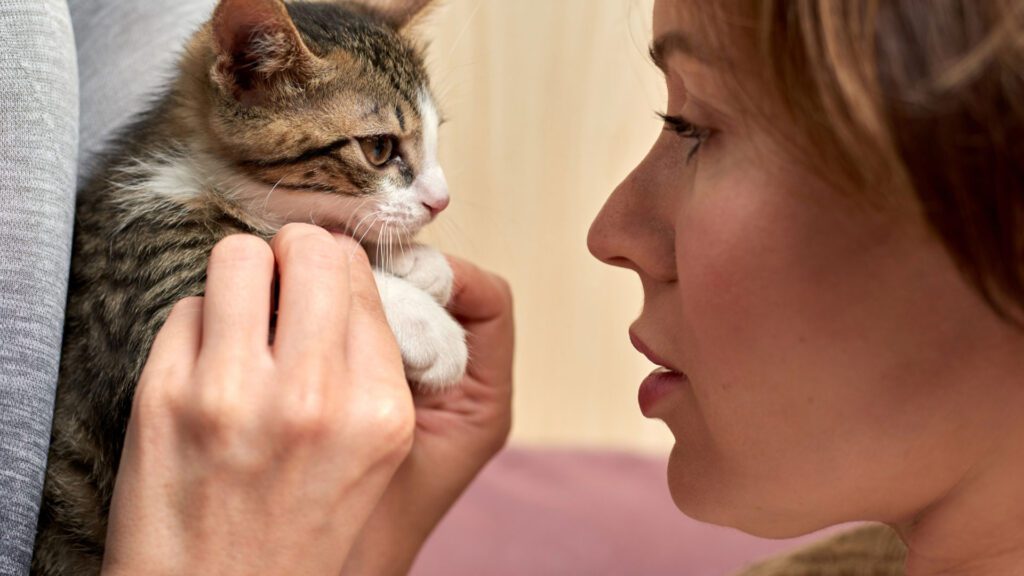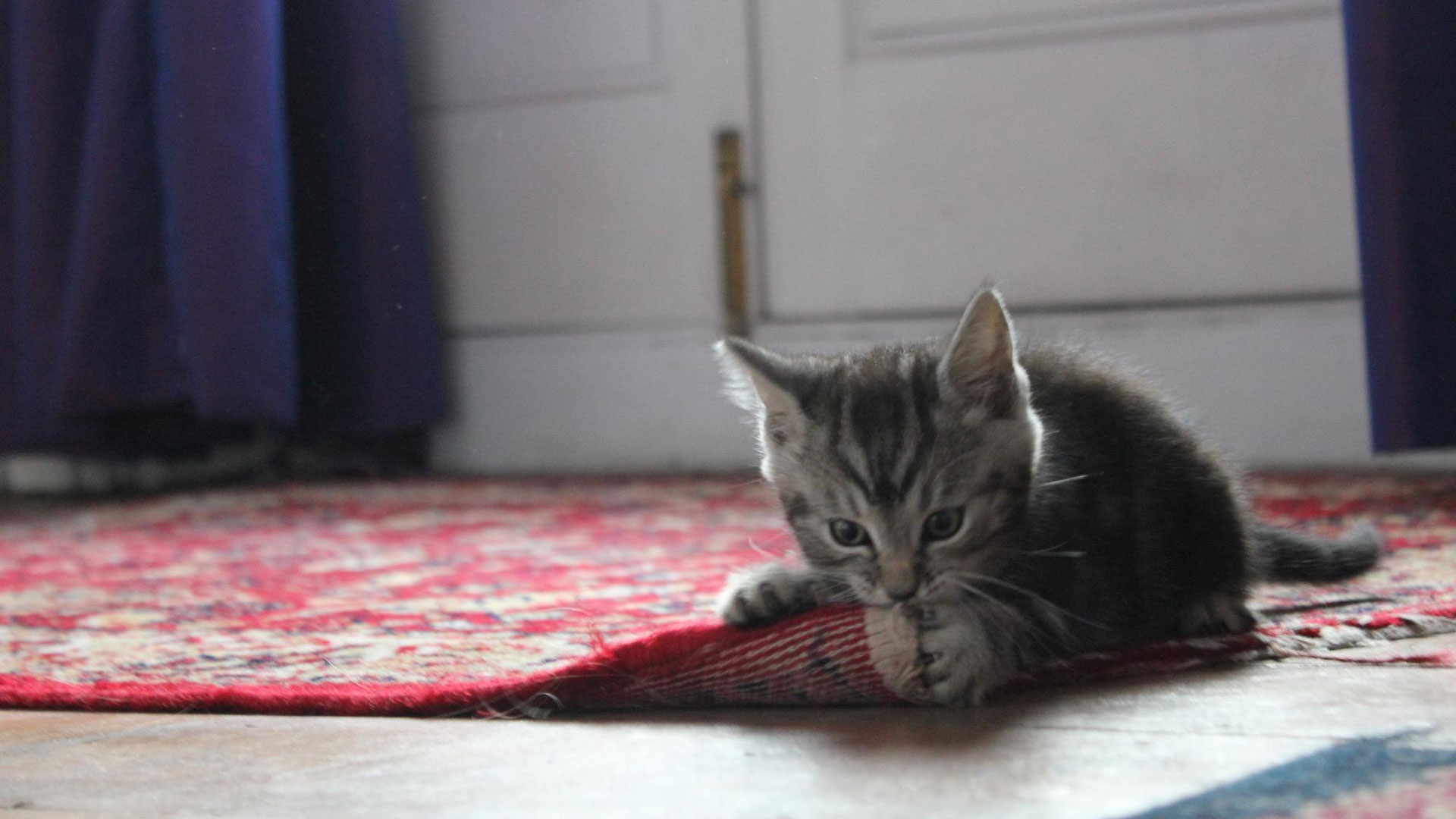Ever found yourself observing your cat’s behavior and realizing that it raises more questions than answers? One of these might be, “Why is my cat licking the floor?”

How your feline goes about its life might seem quite mysterious and confusing to many. But I’m here to dispel any misconceptions and answer any queries you might have about them. So let’s get started!
6 Reasons Your Cat May Lick the Floor & Carpet & Ways to Stop It

When your cat licks the carpet and floors of your house, you may feel a little repulsed. But as a responsible and caring cat owner, you must remember that this is an instinctive quality.
Here are 6 reasons as to why they do it, along with ways to control this behavior.
Food Crumbs and Spills On The Floor
Cats usually start licking the floor in an attempt to find and relish any crumbs or spills your floor might have.
Although this might seem pretty unhygienic and unhealthy, it’s a normal thing that cat’s usually do. But if the behavior gets too excessive, it’s best if you pay a visit to your local pet behaviorist and have their subconscious tendencies curbed.
Curiosity
It’s common knowledge that cats are driven by curiosity. This occurs all thanks to the Jacobson’s organ, which is located on the roof of their mouth.
If you’ve bought yourself a new piece of furniture or anything that sparks your cat’s interest, you should expect them to sniff around and lick it. Once again, it’s pretty normal. It’s just their way of getting acquainted with the new item.
Intense Stress or OCD
Like humans, cats can feel agitated, too. As an outlet, they feel the need to lick the surfaces around them. If you don’t treat this, your cat could potentially face Pica. Don’t worry; we’ll cover this later.
Stress can occur in the event of any major change that requires acclimatization. Sometimes, it can arise due to obsessive-compulsive disorder (OCD). And yes, it’s common in both humans and animals.
In this case, you can relieve their stress by assuring them that you’re there to support them throughout their situation. Keep them mentally stimulated by diverting their attention to other, more engaging activities. This way, they’ll feel more inclined to embrace the change.
Pica
If your cat is licking the floor, they’re probably suffering from Pica. This simply refers to your pet’s uncontrollable urge to eat non-food items like carpets and shoelaces.
Pica can stem from multiple causes like genetics, stress, or nutritional shortages.
This requires immediate attention. If you notice your cat exhibiting signs of this health concern, take them to the vet and get them checked out asap.
If your cat hasn’t been affected by it yet, take preventative measures. Provide your cat with a well-balanced and nutritious diet and relieve their stress in any way you see fit.
The Need to Groom
Another reason for floor licking is your cat’s innate proclivity to groom itself. If you’re already taking care of these needs, they might decide to do so to other surfaces.
Even though this is natural, it’s crucial for cat owners to stave off these tendencies. This could cause them to develop OCD or, worse, ingest something they shouldn’t have eaten.
Either way, you should provide them with cat chew toys they can channel their obsession towards instead.
Pruritus
Another possible reason for your cat’s licking behavior is a medical condition known as pruritus. This usually arises as a symptom of an allergic reaction or dermal illness and is classified by the irrepressible impulse of your cat to itch itself.
But don’t fret! This should subside eventually and doesn’t need to be specially treated.
You can, however, prevent it from happening in the future. Simply moisturize your pets skin or alter their diet to ensure it doesn’t contain any allergens.
Slobbering Our Way to the End!
On that note, we can finally conclude this concise yet informative guide about feline cat licking. Remember, these tendencies are, for the most part, completely normal. If the behavior gets a little out of hand, jump in and seek veterinary help. Professional veterinarians and pet behaviorists should have all the experience they need to recommend the best ways you can to sort out your cat’s licking problem and tips you can take heed of to minimize its frequency in the future.
Don’t forget to administer a thoughtful and considerate approach by being affectionate towards your kitty, keeping it’s needs in mind, and providing for them to the best of your ability.





